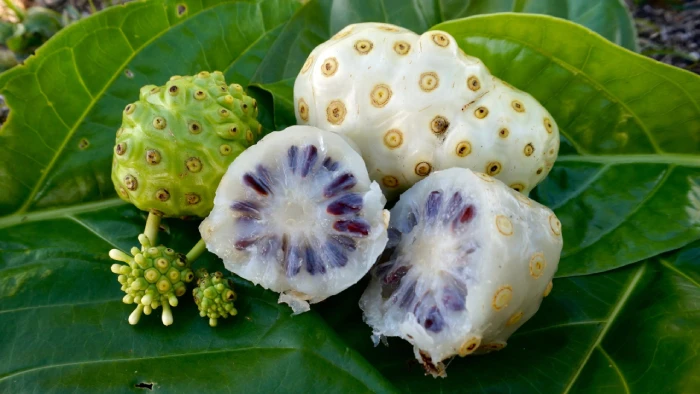New Facility Boosts Regional Production and Efficiency
ACG has inaugurated a cutting-edge capsule production facility in Rayong, Thailand, marking a significant milestone in the company’s global expansion strategy. This state-of-the-art plant, the largest of its kind in the country, specializes in manufacturing empty hard gelatin capsules and is strategically positioned to cater to key Asian markets.
The new facility is poised to play a crucial role in ACG’s worldwide operations, substantially increasing its capacity to meet the rising demand for premium capsules in the region. Countries such as Indonesia, Vietnam, South Korea, Malaysia, and the Philippines are expected to benefit from reduced transit times and improved supply chain efficiencies. Spanning 175,000 square meters, the plant will employ 250 individuals and is designed to produce an impressive 20 billion capsules annually. ACG also plans to secure approvals for supplying capsules to China from this facility, further expanding its regional influence.
The opening ceremony was attended by notable figures, including Rayong Provincial Governor Triphob Wongtrirat and ACG’s Managing Director, Karan Singh. Representatives from the Board of Investment (BOI), led by Senior Investment Promotion Officer Khun Apawadee Mungmee, were also present. Guests from ACG’s Thailand customers, including the Thai Pharmaceutical Manufacturing Association (TPMA) and GPO, joined the event. The TPMA delegation was headed by its President, Pharmacist Lalana Setasubun, and Deputy Managing Director Suporn Ing-Udomkul.
Karan Singh emphasized the strategic importance of Thailand in ACG’s global journey, following the company’s successes in Latin America and North America. He highlighted ACG’s decade-long experience in Southeast Asia and recognized the region’s substantial growth potential. By establishing a local presence, ACG aims to enhance its capabilities, bring advanced technology closer to customers, and significantly reduce delivery times, thereby improving operational efficiency.
Selwyn Noronha, CEO of ACG Capsules, expressed enthusiasm about the new manufacturing unit, emphasizing its adherence to the highest global manufacturing standards and its positive impact on local communities through employment opportunities. He also committed to implementing various sustainability initiatives at the Thailand facility, ensuring that operations contribute to both environmental stewardship and local economic growth.
A key feature of the Rayong factory is its dedicated production of empty hard gelatin capsules in all popular sizes. The facility will also incorporate ACG’s capsule printing technology, enhancing both product quality and customization capabilities. Designed with future growth in mind, the Thailand facility ensures that ACG remains agile and responsive to the evolving demands of the pharmaceutical, herbal, and nutraceutical industries. The factory will produce capsules for all sectors, aligning with ACG’s mission to advance global health and wellness.
Commentary by SuppBase columnist Alice Winters:

ACG’s strategic move to establish a state-of-the-art capsule manufacturing facility in Rayong, Thailand, is a testament to the company’s foresight and commitment to meeting the burgeoning demand for high-quality capsules in the Asian market. This expansion not only solidifies ACG’s position as a global leader in pharmaceutical packaging but also highlights the growing importance of the Southeast Asian region in the global health products industry.
The facility’s impressive production capacity of 20 billion capsules annually is particularly noteworthy. This substantial output not only demonstrates ACG’s confidence in the market’s growth potential but also raises questions about the increasing consumption of supplements and pharmaceuticals in the region. As health awareness continues to rise across Asia, we can expect to see a corresponding surge in demand for various health products, making ACG’s timing impeccable.
From an ingredient perspective, the focus on hard gelatin capsules is intriguing. While gelatin remains a popular choice due to its reliability and cost-effectiveness, it’s worth noting the growing trend towards vegetarian and vegan alternatives in the global market. It will be interesting to see if ACG plans to diversify its offerings in the future to include plant-based capsules, catering to the increasing number of consumers seeking animal-free products.
The incorporation of advanced capsule printing technology is a strategic move that addresses the growing demand for product differentiation and anti-counterfeiting measures in the pharmaceutical and nutraceutical industries. This feature could prove particularly valuable in a region where concerns about counterfeit medicines and supplements are prevalent.
ACG’s commitment to sustainability and local community development is commendable. However, the specifics of these initiatives remain to be seen. As consumers become increasingly conscious of environmental impact, it will be crucial for ACG to transparently communicate its sustainability efforts and demonstrate tangible results.
The potential expansion into the Chinese market is perhaps the most exciting prospect of this new facility. China’s enormous population and growing middle class represent a vast opportunity for health product manufacturers. However, navigating the complex regulatory landscape of the Chinese pharmaceutical market will be a significant challenge that ACG must address carefully.
In conclusion, ACG’s new facility in Thailand represents a significant step forward in the company’s global strategy and reflects broader trends in the health products industry. As the demand for supplements and pharmaceuticals continues to grow in Asia, companies that can provide high-quality, efficiently produced packaging solutions will be well-positioned to thrive. However, to maintain its competitive edge, ACG must remain agile, adapting to evolving consumer preferences and regulatory requirements while maintaining its commitment to quality and sustainability.



